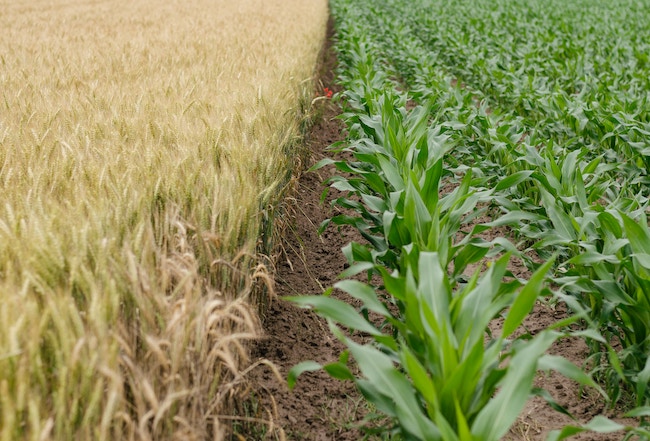The heave-offering (TERUMAH) and tithes (MAASROS) must be set aside as specified below (331:19-21,24,27-28,66-67,76-77) from crops that are eaten by people (331:13,15,74,79). In the land of Israel it is forbidden to eat the crops until these offerings are set aside, but if someone does so he need not pay their value to a KOHEN or Levite (331:70). Crops from which they have not been set aside are called TEVEL; on limitations on the use of TEVEL see 331:115-119. It is permitted to eat TEVEL on an occasional basis until its processing has been completed; see 331:82-114,130.
Nowadays, since we are all impure, TERUMAH must not be eaten, so only a negligible amount of it is set aside. Anyone may derive nondestructive benefit from it, but it must be given to a KOHEN who must burn it and may derive benefit from it when it is burned. The first tithe (1/10) is then set aside and given to a KOHEN or Levite; it may be eaten by anyone. A tithe of the first tithe (1/100) must also be set aside (see 331:24); it is treated like TERUMAH. A second tithe (1/10 of the remainder) is then set aside; in the third and sixth years of the Sabbatical cycle it is given to the poor. In the first, second, fourth, and fifth years the owner keeps it and (nowadays) redeems it for a token amount which he destroys; this must be done outside Jerusalem, first reciting the blessing “…Who commanded us about redemption of the second tithe”; see 331:132-139. For grain and vegetables the year begins on the first of Tishrei; for trees, on the 15th of Shevat (331:125-127).
The commandments about TERUMAH and tithes apply to crops owned at least in part by a Jew; see 331:3-9,11,121. They do not apply in the Sabbatical year because the crops are ownerless (331:13,16-17,19). They apply only in the land of Israel and nearby countries; see 331:1-2,12,14,131. The TERUMAH and tithes should be of good quality and of the same type as the crops they are taken from; see 331:52-65;71-72,75. On mixtures, combinations, and cases of doubt see 331:10,18,22-23,25-26,71,80-81,120,128; on intent see 331:45-51; on trustworthiness see 331:124.
The TERUMAH and tithes must be set aside by the owner or his agent; see 331:29-44,73,129. They are set aside even by a KOHEN, who then keeps them; see 331:68-69,122-123. The person who sets them aside first recites the blessing “…Who commanded us to set aside TERUMAH (or: MAASER)” (311:78). On the last day of Pesach in the fourth and seventh years, after all tithes have been properly given from the previous year’s crops, the “confession of the tithes” is recited; see 331:140-146.
We are commanded to set aside parts of the harvest (dropped, forgotten, and marginal items) for the poor, but nowadays it is not customary to do this because it is likely that the poor will be unable to take them (332:1).
A person who shears five or more sheep each of which produces a sufficient quantity of wool (see 333:9-10,12) should give some of the wool (preferably the first part; see 333:6,11,13) to one or more male or female KOHANIM; it may then be used by anyone (333:5,13,14). This commandment applies only in the land of Israel (see 333:1) to sheep owned by a Jew (see 333:7-8), and only to undyed wool (333:3) of high quality (333:2) cut from a living sheep (333:4).
Shulchan Aruch, Copyright (c) 2000 ProjectGenesis, Inc.


